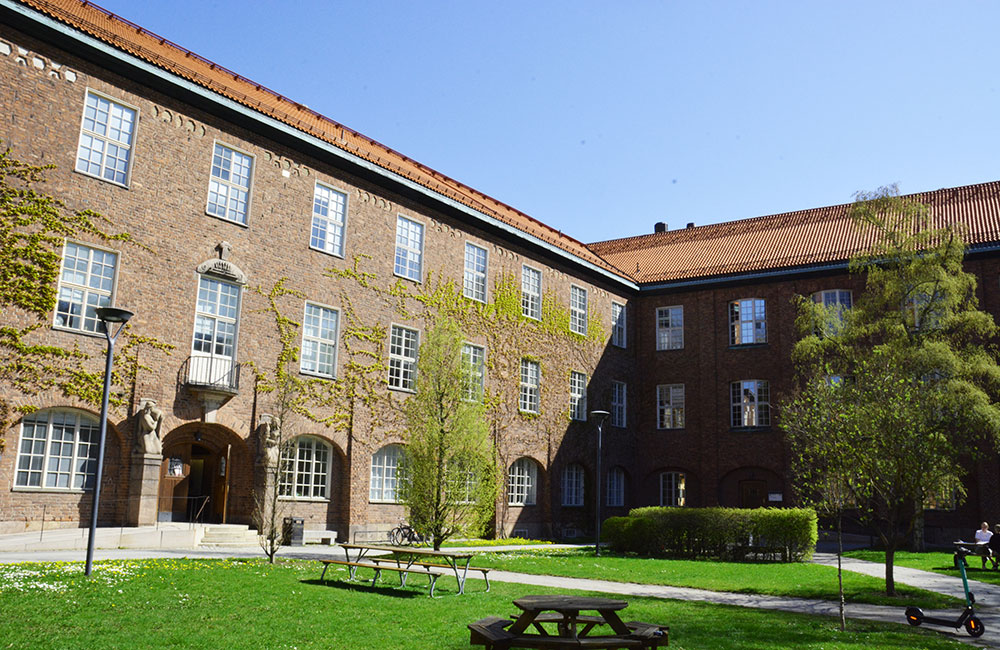Akademiska Hus modernises KTH’s oldest chemistry building
Wednesday, 29 September 2021
The Chemistry block is centrally located on the KTH Campus in Stockholm. This is where the School of Engineering Sciences in Chemistry, Biotechnology and Health (CBH), with nine different departments, carries out its activities. The KTH Chemistry building renovation is part of the development project that Akademiska Hus, in cooperation with the centre of education, identified in the jointly formulated campus plan for the area. The building mainly houses labs and offices, but also public spaces such as staff and meeting facilities. The renovation project will upgrade the facilities to provide a modern knowledge environment.
“KTH is one of the leading technical universities in Europe and an arena for knowledge development. By modernising the KTH Chemistry building, the centre of education can gather its activities in new ways and increase laboratory facility utilisation. As part of Akademiska Hus’ effort to achieve climate neutrality, it’s also important for us to focus on upgrading existing buildings, rather than on new construction,” says Magnus Huss, Market Area Director at Akademiska Hus.
New common research lab
The building renovation will also create a new lab – 2MILab (Molecules and Materials at Interfaces Laboratory) – where various research groups will be able to meet on more flexible terms. A joint research laboratory will entail closer cooperation and the exchange of expertise, while allowing laboratory instruments to be shared and providing an opportunity to set higher standards for the laboratory environment with respect to vibration, temperature and air quality.
“The 2MILab will focus on the interfaces between various materials, where many of the chemical processes that are crucial for renewable energy and sustainable industrial processes take place. Fundamental issues, concrete applications and industrial development will all be promoted by bringing together advanced surface-sensitive methods and, more importantly, a large body of related expertise under one roof. We expect that the 2MILab will encourage collaboration between various research groups, as well as between academia and industry,” says Professor Mikael Lindström, Dean of the School of Engineering Sciences in Chemistry, Biotechnology and Health at KTH.
The renovation of the KTH Chemistry building will begin in November 2021, with completion expected in early 2024. According to the Stockholm City Museum colour coding system for historically important buildings, the 5,400 m2 building is classified as blue, the highest level, and the renovation project is being carried out in close cooperation with a Building Antiquarian. The project also includes some improvements to the outdoor environment on campus, including expanded climate-protected bicycle parking and more charging points for electric vehicles.